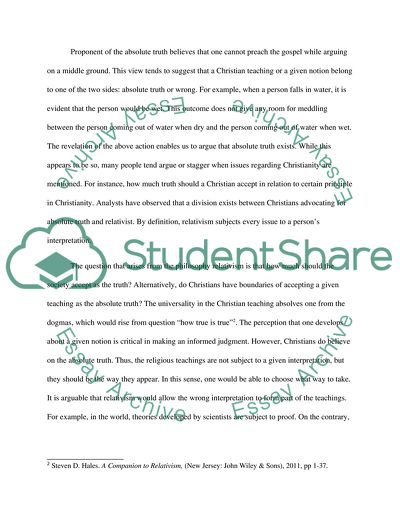Cite this document
(“Debate on Relativism and the Absolute Truth Research Paper - 1”, n.d.)
Retrieved from https://studentshare.org/religion-and-theology/1598957-debate-on-relativism-and-the-absolute-truth
Retrieved from https://studentshare.org/religion-and-theology/1598957-debate-on-relativism-and-the-absolute-truth
(Debate on Relativism and the Absolute Truth Research Paper - 1)
https://studentshare.org/religion-and-theology/1598957-debate-on-relativism-and-the-absolute-truth.
https://studentshare.org/religion-and-theology/1598957-debate-on-relativism-and-the-absolute-truth.
“Debate on Relativism and the Absolute Truth Research Paper - 1”, n.d. https://studentshare.org/religion-and-theology/1598957-debate-on-relativism-and-the-absolute-truth.


